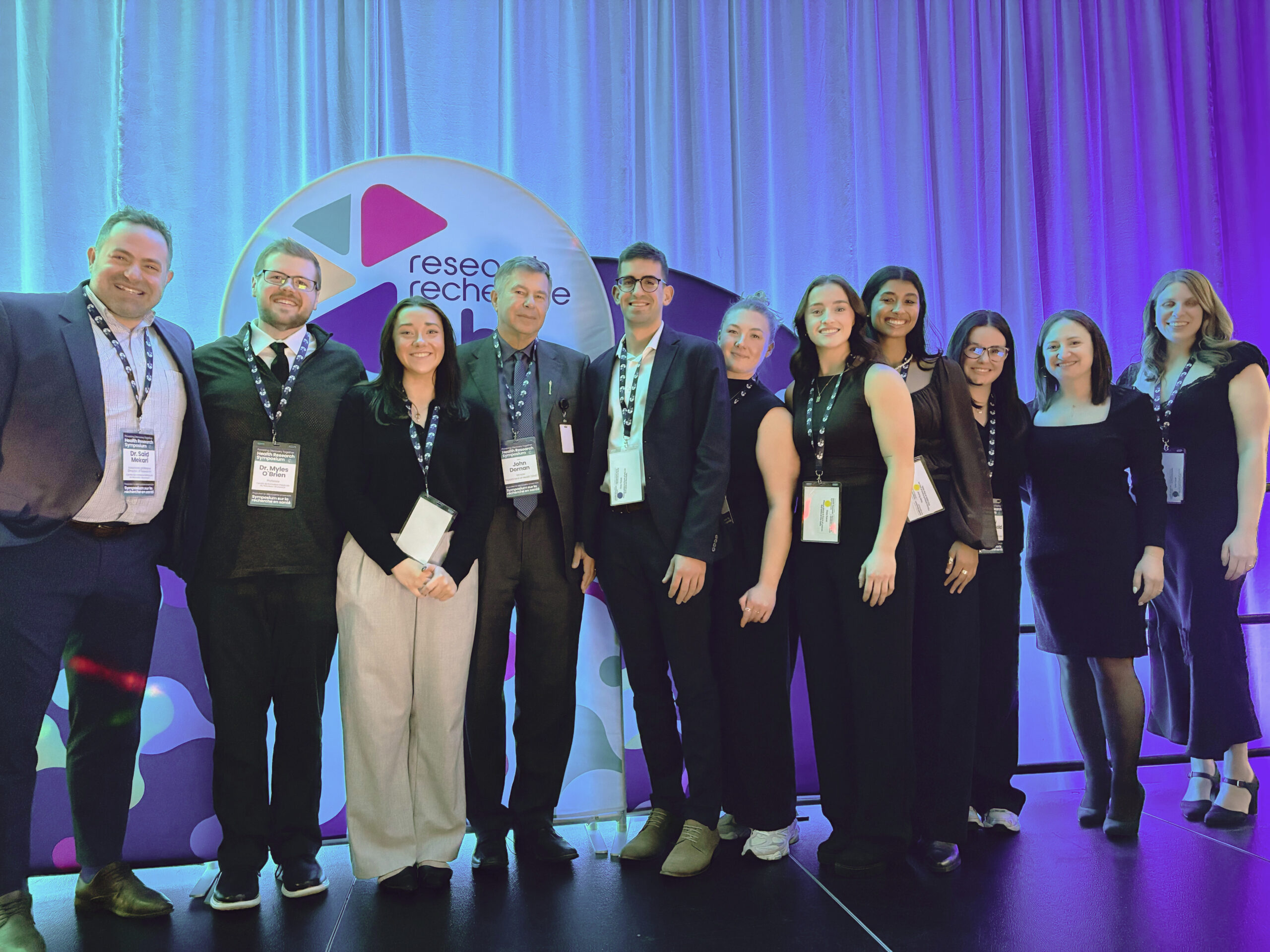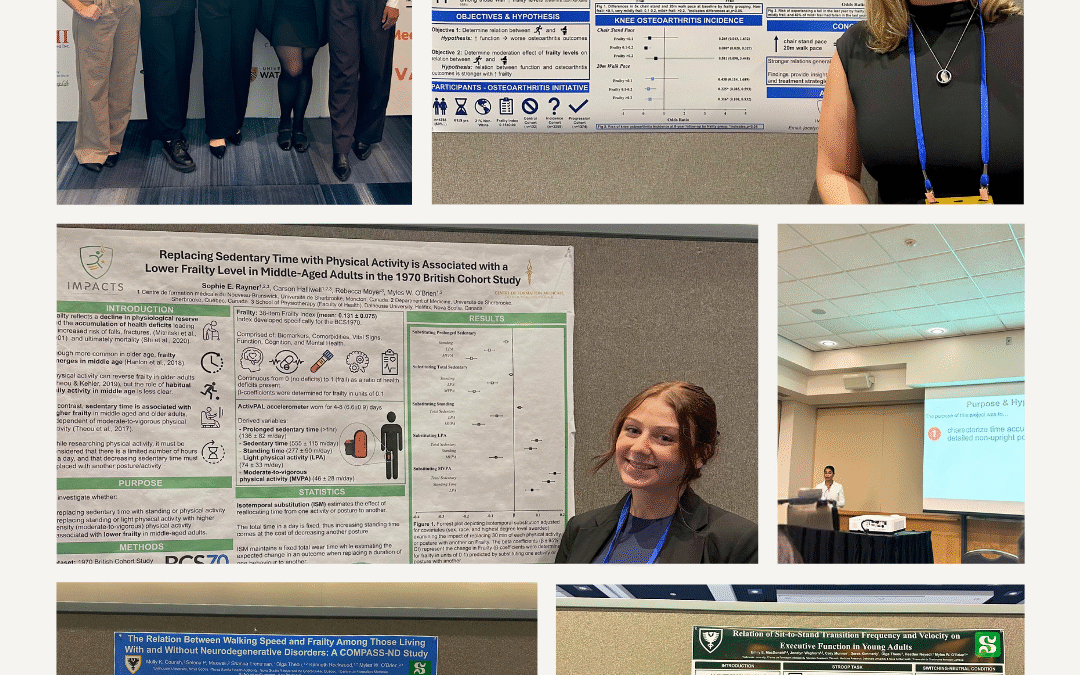
by Julie Dufresne | Nov 24, 2025 | Collaboration, Conference, Results, Students
Researchers and students had the privilege of meeting Hon. Dr. John Dornan, New Brunswick Minister of Health and Candice Ashley Pollack, Chief Executive Officer at ResearchNB. During the event, we shared updates on our projects and explored how research can inform evidence-based health policies. These conversations reinforce the value of connecting researchers and decision-makers to improve health outcomes for our communities.

by Julie Dufresne | Nov 21, 2025 | MATCH, Results, Students
An important milestone has been reached for our colleague Pierre Philippe Wilson Registe, who defended his doctoral thesis on November 7. Entitled «Effet de récence et de cumul d’activités physiques pendant l’adolescence sur l’état de santé au début de l’âge adulte», PPW sought to better understand the influence of overall physical activity levels and physical activity at specific periods during adolescence on the mental health of young adults.
Based on data from the MATCH study and innovative statistical methods, the results suggest that physical activity throughout adolescence is important, but that physical activity in late adolescence is a particularly crucial period for promoting a transition to a more active, balanced, and healthier adult life in the long term, both physically and mentally. In a context where the mental health of young Canadians is deteriorating, these findings offer valuable avenues for intervention for public health and policy makers.
Pierre Philippe Wilson completed his PhD in health sciences at the Université de Sherbrooke, at the Centre de formation médicale du Nouveau-Brunswick, under the supervision of Professors Mathieu Bélanger and Said Mekari of the Faculté de médecine et des sciences de la santé – Université de Sherbrooke. Our sincere congratulations Registe!

by Julie Dufresne | Nov 7, 2025 | Conference, Students
From October 15-18 October, some students from the IMPACTS Lab had the opportunity to present their research at the CSEP 2025 Conference in London, Ontario. Here’s an overview of their research contributions in the areas of mobility, aging, and frailty:
- Jocelyn Waghorn (Poster) – Examining the Relation Between Lower-Limb Functional Performance Measures and Knee Osteoarthritis Outcomes by Varying Frailty Levels
🔍 Lower-limb function strongly relates to osteoarthritis outcomes, especially in frailer individuals. Strategies are needed to help vulnerable adults maintain function and joint health.
- Sophie Rayner (Poster) – The association between physical activity and frailty index within the British cohort study
🔍 More sedentary time = higher frailty. Replacing just 30 minutes of sedentary time with light or moderate-to-vigorous activity can make a difference.
- Madeline Shivgulam (Free Communication) – Characterizing posture in long-term care & the relation of habitual postures with frailty
🔍 Older adults in long term care spend most of their day sitting or lying. Promoting upright time, sit-to-stand transitions, and knee-bent sitting rather than lying are warranted for frailty management.
- Molly Courish (Poster) – The Relationship Between Walking Speed & Frailty Among Those Living With and Without Neurodegenerative Disorders: A Study of Adults from the COMPASS_ND Study
🔍 Faster gait speed is linked to lower frailty levels in neurodegenerative populations. Enhancing gait speed may be key to reducing frailty in vulnerable groups.
- Emily MacDonald (Poster) – Relation of Sit-to-Stand Transition Frequency and Velocity on Executive Function in Young Adults
🔍 Surprisingly, faster transitions may be linked to poorer cognitive performance. A fascinating look at mobility and cognition in youth.
👏 Congratulations to all presenters for sharing their work.



